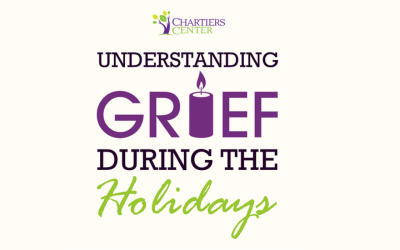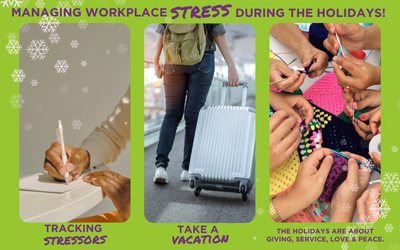Suzie’s mood has plummeted these past three months. She is depressed and has little energy. Suzie sleeps about 3 hours a night, wakes up for about 45 minutes and falls back asleep for about two hours then awaking again. She takes her medication as prescribed, but it doesn’t seem to be working. Her depression includes feelings of sadness and she has lost pleasure in doing activities she normally likes.
She see’s her therapist every two weeks and sees the psychiatrist about every 6 weeks. Her therapist asks Suzie how she has been sleeping. Suzie consistently has said fine in the past, not realizing that her erratic sleep has affected her in any way. Finally, Suzie comes clean with the therapist, who informs Suzie’s psychiatrist. Suzie is put on a medication, not only for depression but to help her sleep. Suzie agrees with her therapist and psychiatrist’s recommendations that it is also important to develop and maintain healthy lifestyle behaviors as medication is not the only solution. During the next psychiatric visit, Suzie looks refreshed. She has calmness about her and her face appears to be much brighter. She appears to be more alive, yet serene. Her whole attitude has changed and she has gone back to doing things she enjoys. Suzie is sleeping about eight and a half hours a night. She feels like a new person.
Matt is unable to fall asleep and when he finally does, he awakens after two hours. His mind is racing and his thoughts are getting to be more than he can handle. He is becoming agitated and short-tempered. His mood becomes elevated, especially at night. Although he is on a mood stabilizer, he is having mood swings.
Matt, too, sees his therapist once a month and his psychiatrist every 8 weeks. In therapy, he tells the therapist about his mood and his sleep. She schedules it so Matt can see his psychiatrist sooner, and has therapy every two weeks. When Matt meets with his psychiatrist, he discusses his mental health issues and his poor sleeping habits. Matt gets the medication he needs and starts to feel better and is now open to lifestyle changes such as following a healthy diet, exercise etc.
Carrie, too, has trouble sleeping, but she does not want to take medication for it, although she is diagnosed with generalized anxiety disorder. She gets psychotherapy and practices good sleep hygiene instead. “Sleep hygiene is a collection of habits that can help you fall asleep more easily and sleep more deeply.” (www.onemedical.com). With her therapist’s help, Carrie has created a routine that she completes before bedtime. This routine includes writing down her worries, taking a warm bath before bed and going to bed at the same time every day. Putting herself on a schedule ‘trains’ her body so it knows when it’s supposed to sleep. She then feels like a new person.
“Sleep problems are more likely to affect patients with psychiatric disorders than people in the general population. Sleep problems may increase risk for developing particular mental illnesses, as well as result from such disorders. Treating the sleep disorder may help alleviate symptoms of the mental health problem.” (Harvard Health Publications www.health.harvard.edu).
The mania in bipolar disorder can cause lack of sleep, and thus, an increase in mania. One can oversleep or experience lack of sleep if one has depression. Generalized anxiety disorder can also cause lack of sleep. Not only does this make it more difficult to treat these disorders, lack of sleep can cause these symptoms. Developing a normal sleep schedule, can ease symptoms. One does not always have to take medication for sleep, as there are natural remedies for sleep. Not only is a sleep schedule important, routines can help too. Don’t read or watch T.V. in bed. Get out of bed if you haven’t been able to fall asleep in 20 minutes, and try again later. Read in another room if that makes you tired, and then go to bed. Meditate. Or don’t be afraid to talk to your doctor. There are many medications that can help one sleep. Or having the right combination of medications to ease symptoms of mental illness can assist. Cognitive Behavioral Therapy can also help.
In other words, sleep is very important. Good mental health requires it. Don’t ignore sleep problems. Talk to your doctor and therapist if you are having troubles. Practice good sleep hygiene. Not only will symptoms subside, but you will feel better during the day.

What’s In Your Personal Medicine Kit?
Consumers in Chartiers’ psychosocial and residential programs have found that relying on their personal medicine has provided them an outlet for their anxiety and depression.(‘Personal Medicine is the things we do to be well. Many of us know that finding the right balance of personal medicine and psychiatric medicine is the road to recovery.” Pat Deegan). In one of the day programs, the staff person shared, “We do basic Tai Chi exercises 1/week. I make flash cards with pictures of simple moves from the book “Tai Chi Simple Routines for Home, Work & Travel” by Tin-Yu Lam. Everyone in the group takes a turn demonstrating / instructing for the rest of the group. It is a relaxing and rejuvenating way to start the day with a calm, energy building, and slow activity.” One of the other consumer groups incorporates meditation and sleep suggestions into their Wellness and Recovery goals.
At Chartiers Center, consumers are encouraged to identify recovery goals that will aid in their wellness. These goals are also known as their personal medicine. Two other group activities that are enjoyed by consumers in our Long Term Structured Residence are a walking group and the agency garden. What’s in your personal medicine kit?
Ways To Stay Sober Through The Holidays
The holiday season is upon us and this can be a challenging time for some individuals especially those who are in recovery and expected to engage in festivities. These...



